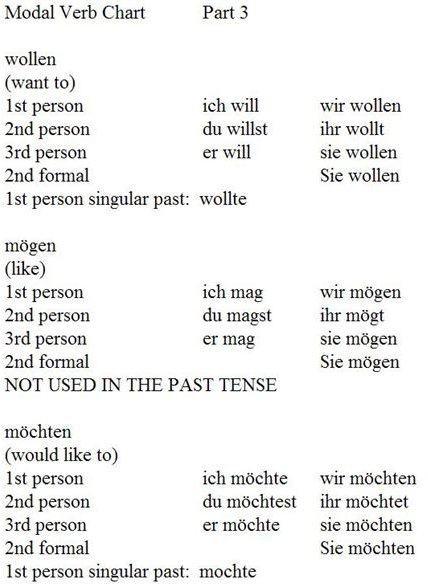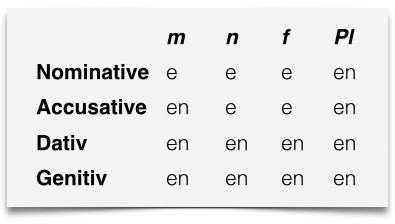Most german verbs follow a predictable pattern in the present tense. once you learn the pattern for one german verb, you know how most german verbs are conjugated. (yes, there are some irregular verbs like haben and sein that don't always follow the rules, but even they will usually have the same endings as other verbs.) the basics. each verb has a basic "infinitive" ("to") form.. This video tells you how to conjugate the regular verbs in german :-). As with other verbs, in the conjugation of the verb lesen, the root vowel changes in the second- and third-person singular. the vowel e becomes ie . the ie is spoken as a long i ..
German verbs are conjugated depending on their use: as in english, they are modified depending on the persons (identity) and number of the subject of a sentence, as well as depending on the tense and mood.. the citation form of german verbs is the infinitive form, which generally consists of the bare form of the verb with -(e)n added to the end. to conjugate regular verbs, this is removed and. Welche sprachen sprichst du, lisa? – ich spreche deutsch, englisch und italienisch.. like essen and nehmen, the verb sprechen belongs to the verbs with a vowel change from e to i in the second- and third-person singular.. German grammar. use these german language resources to avoid common mistakes, learn basic rules, practice conjugation, and polish your grammar..




0 komentar:
Posting Komentar